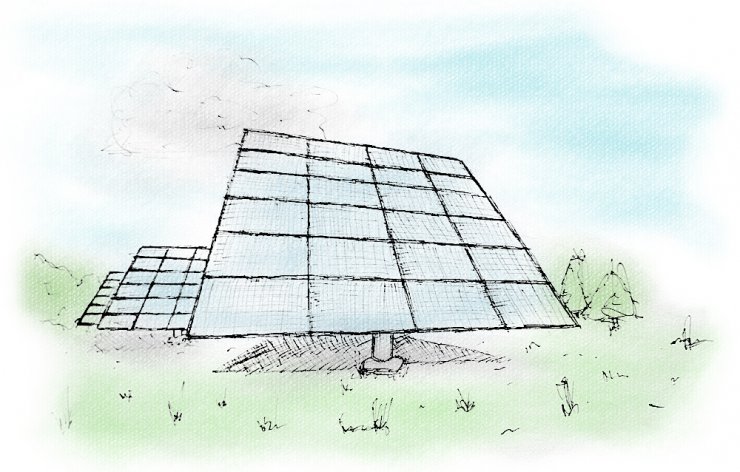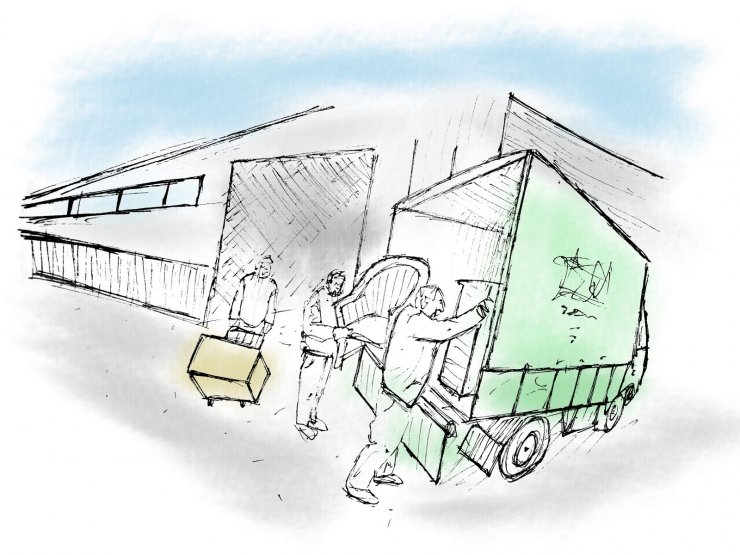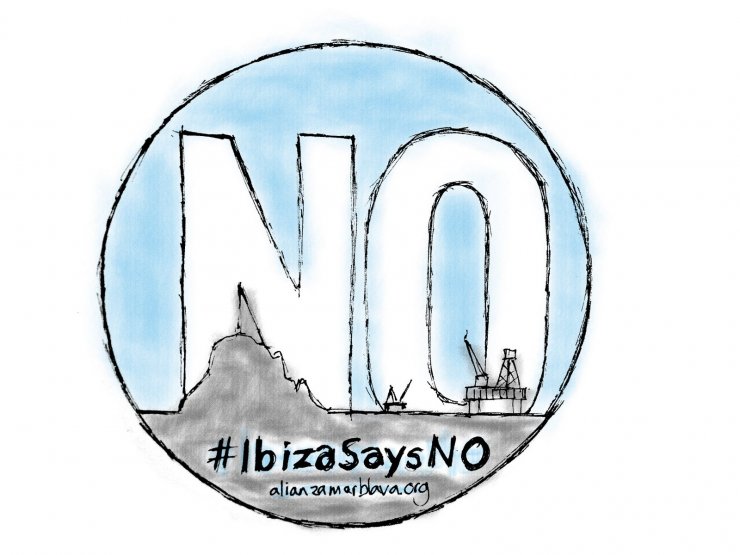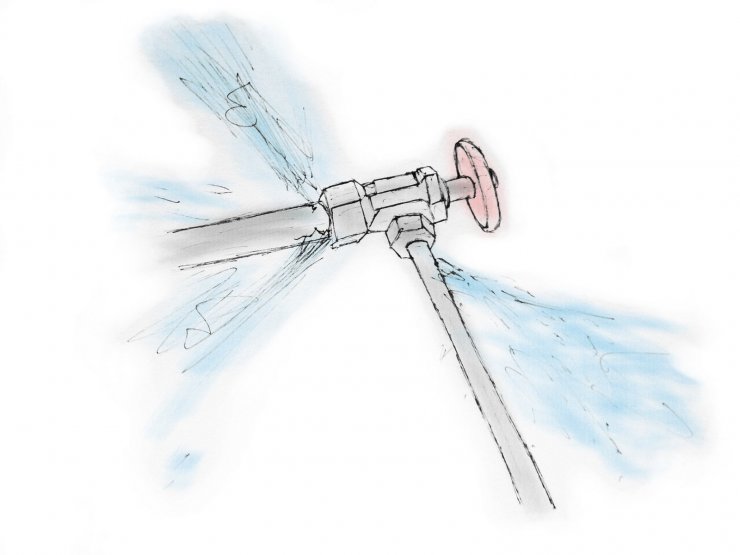Ibiza is a place of spectacular beauty, is home to a rich diversity of nature and boasts several UNESCO World Heritage sites. As well as being a great place to live, each year the island attracts around two million tourists who come to enjoy the island in many different ways. The whole planet is at risk from the damage we are doing to the environment and Ibiza is no exception. As a small island of just 40km long, swollen with visitors in the summer, it needs your help. In short, we're asking you to love Ibiza like it loves you.
The tourist trade provides the bulk of Ibiza's income - around 85% - and without it the island would not have been able to develop to the point it has today. As consumers, whether tourist or resident, we have a lot of power in our hands to help bring about change and look after the island. If each of us contributes in even a small way, collectively that makes a big difference and will mean that we safeguard Ibiza, so we can all continue to enjoy it in the years to come and beyond.
Many of the groups involved in protecting the environment in Ibiza believe that this magical White Isle has the opportunity to do for sustainability what it has done for dance music. Imagine that. When Ibiza and its international community of fans mobilises itself, great things can happen; witness the recent banishing of Ibiza Shore and the victory in ending part of the oil exploration licenses. Here we outline some of the key factors affecting the environment as well as ways that you can pitch in and help and keep Ibiza special.
ENERGY

Power is now mostly generated from oil that has to be shipped in. It's dirty, highly polluting and very expensive, costing five times more to produce energy than in mainland Spain. This is going to change, with a gas pipeline being installed connecting the Balearics. However, energy consumption has grown 70% over the last decade and is set to rise; the increased use of air conditioning and the energy that water desalination plants use will possibly mitigate this new gas supply.
One of the things that Ibiza has in abundance is sun: here it shines for 300+ days of the year. This is ideal for solar energy and it's been estimated that 100% of Ibiza and Formentera's energy needs could be met using solar, now it's currently only 1% of the total.
Ibiza GREEN Car Advert featuring the all electric Renault ZOE from Garry McManus on Vimeo.
There's a current initiative to make Formentera 100% solar powered, which it is hoped will spread to the rest of the Balearics. The economics of it are good too as solar energy is much cheaper to produce, so it has grabbed the Spanish Government's attention. Chris Dews, founder of Greenheart Ibiza, and Casita Verde, a showcase green project and eco centre that uses 100% solar and wind energy, believes there is a big eco-opportunity, he says: “In ecology terms, Ibiza is around ten years behind everyone else, but it could be the number one sustainable resort on the planet. We need to aim for that”.
What you can do
- Only use your car when you need to and avoid making unnecessary trips to avoid burning hydrocarbons.
- Air conditioning uses a lot of energy; when you're not in your hotel, remember to turn it off.
- If you are a business or resident, consider switching to a supplier that uses renewable energy such as SOM Energía - it will send a positive message.
- When you book your holiday accommodation, ask what their green policy is. Ask if they use renewable energy and if not, why not? The more people that ask, the more businesses will use energy from renewable sources. You can also use TripAdvisor as a forum (in a friendly way) if you think their energy or overall green policy isn't quite up to scratch.
- Use your consumer power by speaking to your tour operator and asking to be accommodated by places that take energy use seriously – these guys have the potential to influence hotels to change their energy and overall environmental policies.
- Hire your car from someone like Ibiza Green Car, which has a fleet of electric vehicles. The more demand, the more availability there will be, plus there's a fast copycat culture on the island if something works well, so others will follow suit. Ibiza Green Car also operate a Car Club with some of the Agroturismos on the island and some of these have recharging points for electric cars.
WASTE

Compared with some European countries, Ibiza recycles very little. “San Antonio is the disgrace of the island” says Hazel Morgan, president of Amics de la Terra Eivissa (Friends of the Earth). And, at only 8.2%, it could do a lot better. Santa Eulalia is the best performer, recycling 16.4% of its waste. It's clear though, that on the whole much more needs to be done. This is where we all come in, since Hazel believes that when people take action the island government follows. Having bins on the street that are divided into general and recycling waste means that the overflowing bins stuffed with cans, bottles and everything else wont just go to landfill or be incinerated.
In the meantime, there are recycling points across the island, the big bins you'll see in grey for general rubbish, yellow for plastic and aluminium, green for glass and blue for paper and card. The San Jose municipality has recently upgraded its bins using pictures to show you what goes where to get over language barriers, plus there are larger apertures to insert your waste. Making it easy for people to dispose of their recycling is key to making it happen.
Chris uses self-composting toilets at Casita Verde, which makes useful manure for growing things. There's no reason why hotels shouldn't follow suit, especially when toilets use so much water (11 litres per flush). This kind of thing is being taken up in the UK, Sweden and Australia amongst other nations. It's possible one day this could become the norm in houses and public buildings and Ibiza could be the one to show the way - and we'd immediately have about 30% more drinking water available.
What you can do
- Again, ask your local council what it is doing. That way, it is more likely to provide more smaller waste bins for easier recycling.
- Instead of throwing your bottles and cans into the general rubbish in your accommodation, collect it up and at the end of your holiday take it to those recycling bins.
- Hotels, restaurants and bars are mandated by law to recycle, but it's believed that many don't. Ask your hotel where it publishes its recycling policy, ditto restaurants and bars. If they see that it matters to customers, they'll do more about it. It's another question for the tour operator too.
- Give your old electrical goods and furniture to Deixailles, which will take these from residences and businesses, fix them up and re-sell them. They also employ people from excluded sections of society and train them up, so have a great socially responsible approach.
LAND AND SEA

A lot of farmers have abandoned farming because of the economics. However, there has been an increase in sustainable and organic farming, and there is a now a very good supply of local produce on the island. Currently 98% of all food products are imported, so by buying local where possible you can really help the local economy. Agroturismos are trying their best to provide more green options for tourists and they take better care of the land. Simon Johnson who runs Agrotursimo Morna points out that to date there are still too few Agrotursimo licences and thinks more can be done to promote self-sufficiency: “We want to grow as much of our own produce as possible and encourage more businesses to do the same,” he says.
When farmland is abandoned, the pine trees often take over and there isn't enough stewardship of the land to prevent this happening. Not only do pines acidify the soil, the lack of rainwater can lead to forest fires from so many trees. There are a lot of private homes spread around the island and forest fires can often emanate from there. “Unsurprisingly, a fireman's priority is people first, houses second, surrounding trees last," says Sandra Benbeniste, director of the Ibiza Preservation Fund (IPF). “Owners should clear a good space between the house and forest, cutting trees down where necessary so that fires can't spread so easily."
Sandra is also passionate about the sea and the Posidonia sea grass meadows, which support a lot of marine life and which are being threatened by the presence of too many boats. The IPF was one of the main drivers behind the formation of Alianza Mar Blava, that recently won a part victory in stopping oil exploration in the surrounding seas that threatened to cause much destruction not just to the Posidonia but to Ibiza and Formentera as a whole. “That battle isn't over yet,” says Sandra, as there are still two more exploration licenses to fight. It is also hoped that eventually Alianza Mar Blava will become a voice for saying yes to renewable energy.
The beaches in Ibiza are some of the most beautiful anywhere and it is a shame when we see them littered with so much rubbish. The good news is that the negative press about this has encouraged the government to send in a small team to attack the problem. Ibiza Limpia, started by Chris Dews has for a long whole been doing weekly beach cleans to keep them free of rubbish, working alongside local authorities and with anyone who wants to join in. It's a great initiative since it helps to create environmental awareness of individuals' actions. At the end of the day though, on a small island like this, no one should litter!
What you can do
- Buy local and organic where possible to support farmers on the island. There's a guide on where to get them on Amics de la Terra website and if you want to go further Greenheart Ibiza has a guide to local eco-businesses.
- Support the Ibiza Preservation Fund by donating to help it achieve its goals and join the Alianza Mar Blava.
- Tidy the area around you when on the beach or out and about and either recycle or dispose of general rubbish safely.
- Participate in group actions that are positive for the island, such as Ibiza Limpia.
Don't throw cigarette butts out of the car window and avoid starting a barbecue near dry and forested areas.
Water

Ibiza faces grave challenges with its water supply: 52% of the water in the San José area leaks out of the pipes before it even reaches households; in fact across the island the average for losing water this way runs at 30%. The water for many comes from underground aquifers that are fed by rainwater, but after two recent dry summers, these are being depleted and in many places are high in salt, and in coastal areas, seawater leaks in when there isn't enough fresh water.
So what's the solution? Well there are three desalination plants on the island, but they are not that well connected to each other, plus one of them isn't even in operation because of ‘administration problems'. Desalinated water can be pumped into aquifers to reduce salt water levels, making it safe to drink. These plants aren't a panacea and we can't just build more of them, as they are big consumers of power and water. But, making better use of them would make sense so they are well-connected to each other. This would mean a better supply of water to many places, including hotels, some of which have their own illegal desalination plants. What this has meant is that hotels have been issuing the brine byproduct down the drains – a better, reliable supply would solve that at a stroke.
What we can do as individuals is important. Katherine Berry, author of our recent water safety article and a volunteer for the IPF advises that 75% of water use is in the bathroom, with 25% of that via the toilet. So, ask yourself do you need a half-hour shower, which uses up to 23 litres per minute and can you do without a running tap whilst brushing your teeth or shaving? There's 9 litres each minute you don't need to waste. Katherine suggests things like: taking shorter showers with decreased flow; washing dishes and cleaning vegetables in a full sink rather than under flowing water, and running the dishwasher and washing machine on full load.
Things you can do
- As above, don't leave the tap on whilst brushing your teeth or shaving.
- Katherine has made a great video on water use on Ibiza. Share her video via social media and help build awareness.
- Become water wise. Only 2.5% of the world's water is fresh water, so start conserving now and help Ibiza and indeed everywhere out.
- Residents: send an open letter to your local municipality asking that it work harder to fix the water pipe network and make better use of the existing desalination plants or start a petition and share via social media.
- Swimming pools are a big user of water and contain 400-500 million litres of it in the 10,000 pools on the island, so when not in use, make sure it's covered to avoid evaporation. If your hotel doesn't do that, ask them why not.
- Rainwater can be captured to fill pools, so look into that. It can also be used to irrigate crops and water gardens. It's the same with greywater (waste water from baths, sinks and washing machines) – this can be also used to water your garden and plants.
A lot is being done by some remarkable individuals to ensure that Ibiza continues to be magical as well as a home to many people and as a top tourist destination. If you only do one of the above actions, you will have made a positive impact to keep Ibiza special for the millions of people around the world that come here. It starts with all of us.
With special thanks to
Sandra Benbeniste, Hazel Morgan, Chris Dews and Katherine Berry
Links
If you'd like to get involved by donating or volunteering, these groups will welcome your support:
Amics de la Terra Eivissa (Friends of the Earth)
Gen (website currently only in Catalan)
View this feature in the weekly Spotlight Magazine, Issue 039.
WORDS | Julian Heathcote ILLUSTRATION | James Chapman